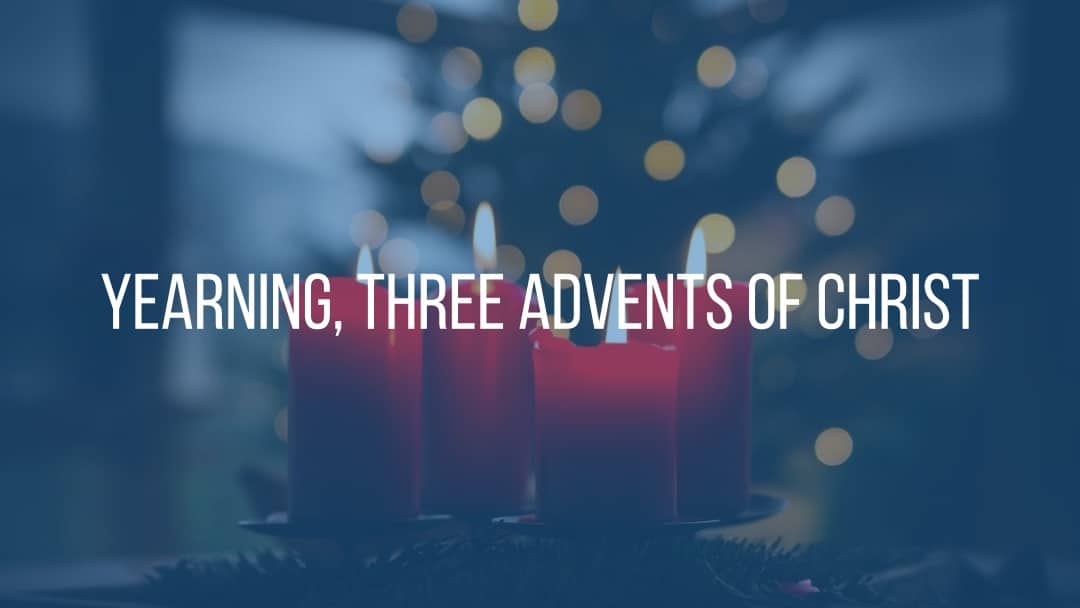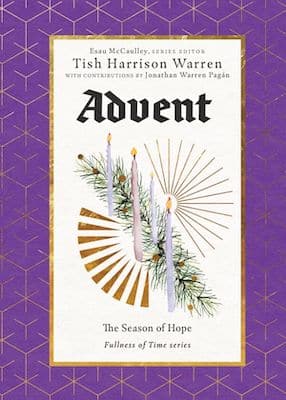Blog post adapted from Advent: The Season of Hope by Tish Harrison Warren.
Adapted from Chapter 1, “Yearning, Three Advents of Christ,” reproduced with permission from IVP.
As the calendar year winds down, as the days darken and grow short, as Christmas songs spill from crowded stores and children set about making wish lists for Santa, the church’s year dawns. On the fourth Sunday before Christmas, Advent begins. The first day of Advent is our Christian New Year’s Day. It kicks off the entire cycle of the liturgical calendar, which through each passing week will slowly unfurl the story of Jesus’ life, death, resurrection, ascension, and sending of the Holy Spirit.
We begin our Christian year in waiting. We do not begin with our own frenetic effort or energy. We do not begin with the merriment of Christmas or the triumph of Easter. We do not begin with the work of the church or the mandate of the Great Commission. Instead, we begin in a place of yearning. We wait for our king to come.
The word advent derives from the Latin adventus, which means “coming.” The liturgical season of Advent is the time in which we prepare for and look forward to the coming of Christ.
Christians, of course, believe that Christ has already come. Jesus has already brought the kingdom of God near. He has already stretched out his hands to heal and to bless. He has already been broken on the cross and defeated death. He has already poured out his Spirit. So why do we reenter a season of waiting each year? What are we waiting for?
Three Comings of Christ
We Christians believe, however, not just in one coming of Christ but in three: the coming of Christ in the incarnation (theologians have sometimes called this the adventus redemptionis, the coming of redemption), the coming of Christ in what Scripture terms “the last days” (the adventus glorificamus, the coming in glory), and the coming of Christ in our present moment, through the Holy Spirit’s work and through Word and sacrament (the adventus sanctificationis, the coming of holy things or holiness) (Rutledge, 2018). Advent celebrates and holds together all three “comings” of Christ.
It is a deeply paradoxical season, at once past, present, and future. Ancient yet urgent.
When we enter into the waiting of Advent, we do so not primarily as individuals but with all people of faith throughout time and around the globe. When we worship together each week, we join our voices, as the Anglican liturgy says, “with angels and archangels and the whole company of heaven.” Because of this, the church calendar as a whole—and Advent specifically—is a way to reach toward timelessness through time itself. It is a season out of time. It is a season marked by days and weeks, yet through it we enter into the eternal story of God and God’s work on earth.
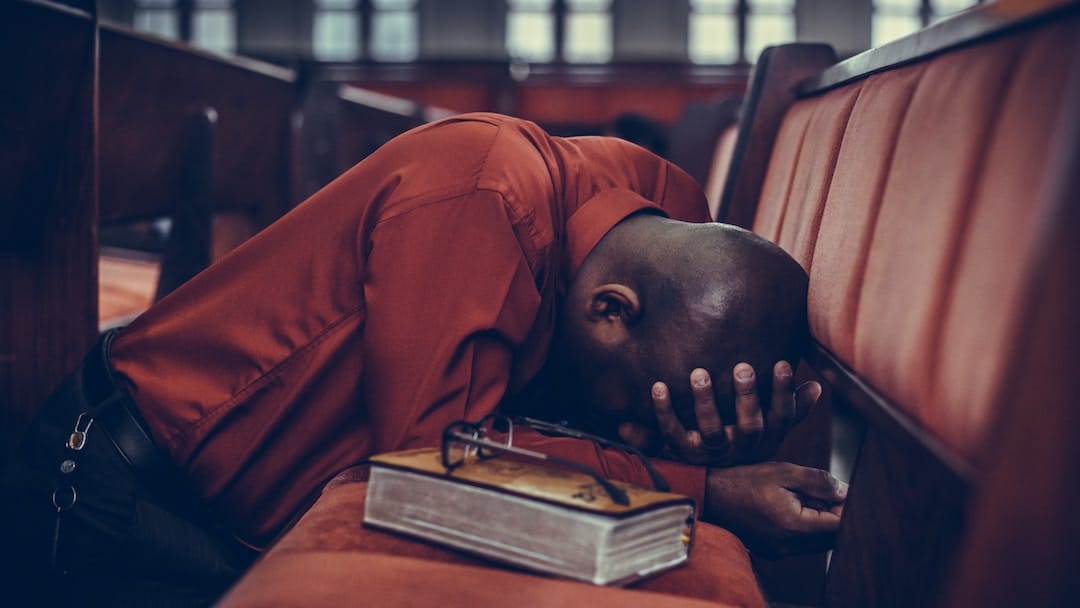
The Coming of Christ in the Present
In Advent we take time to reflect on how Jesus, whom the people of Israel longed for, meets us today. We look at the places in our own lives where we yearn for Christ to come, places where we need hope, encouragement, help, and deliverance.
In Advent we also notice how Christ continues his work in the world. In years that feel full of turmoil—times where political strife, war, and global suffering dominate the news—I find myself hungry for Advent. In 2020, during the first year of the coronavirus pandemic, I could not wait for Advent to begin. I needed it. I needed a time when we as a church could grieve the pain and sin in the world and together wait for Christ to come, even now.
Advent is the season when we practice watching for grace. It is a time when we pay extra attention to how Christ continues to come, how he enters into the darkest corners of humanity and of our own lives. It is a time when we invite Christ to meet us and, in the words of Rich Mullins, to “shake us forward and shake us free.”
Advent is also the time when we recall that Christ comes to us actually and tangibly through the means of grace: through the Scriptures, through baptism, and through the Lord’s Supper (or the Eucharist). That these are called the means of grace reminds us that grace is not a free-floating force, much less a warm, spiritual feeling, untethered from the earth and human history. Instead, grace is the reality that God is at work. And his work is most often through earthy things. These means of grace are the reliable ways in which we know Christ in the present. They are sturdy crags, handholds that allow us to continue in the way of Christ and offer us the presence of Christ, week in and week out.
Christ came to us in the incarnation, and he keeps coming to us through the Spirit. We are buried with him and raised with him in baptism (see Romans 6:3-4), washed in the water of regeneration (see Titus 3:5). We are given bread from heaven (see John 6:32) and his body and blood through the Eucharist (see 1 Corinthians 10:16). We receive the Word through his word, read and preached in the church.
We begin our year not only by waiting but by readying ourselves to receive the gifts of repentance, healing, and restoration that God gives by grace. We come to God openhanded, holding our imperfect and incomplete lives before him. We need him to come to us, to rescue and restore us, even today, in our everyday lives.
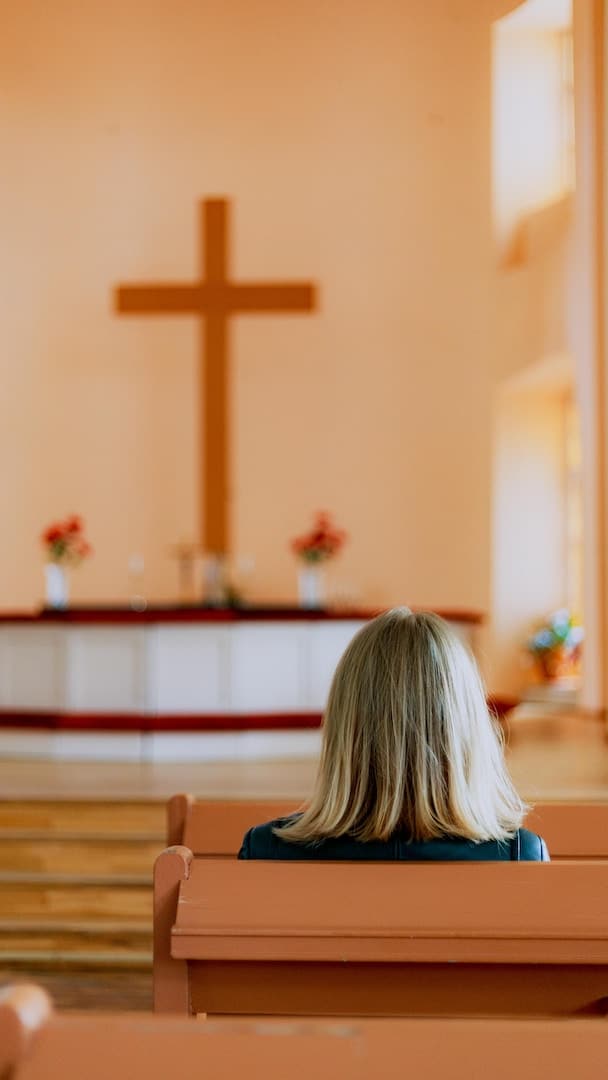
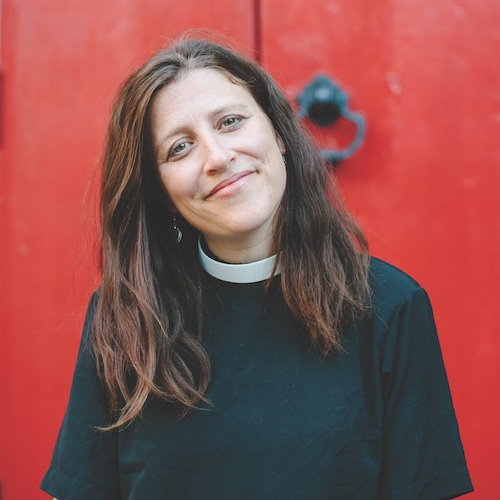
Tish Harrison Warren is the author of Liturgy of the Ordinary, which was Christianity Today’s 2018 Book of the Year. She was a weekly contributing newsletter writer for the New York Times and writes a monthly column for Christianity Today. She has worked in ministry settings for over a decade as a campus minister with InterVarsity Graduate and Faculty Ministries and as the writer-in-residence at Church of the Ascension in Pittsburgh, Pennsylvania. Her articles and essays have appeared in the New York Times, Religion News Service, Christianity Today, Comment Magazine, The Point, and elsewhere.
About Advent: The Season of Hope
We tend to think of Advent as the season of anticipation before Christmas—and while it is that, it’s also much more. Throughout its history, the church has observed Advent as a preparation not only for the first coming of Christ in his incarnation but also for his second coming at the last day. It’s also about a third coming: the coming of Christ to meet us in our present moment, to make us holy by his Word and Sacrament. Join us this week as Tish Harrison Warren shares an adaptation from her book Advent, part of the Fullness of Time Series. In this selection Tish shares more about this paradoxical season, at once past, present, and future. Ancient yet urgent.
Don’t Miss
The Latest From Our Blog
New Site Launches Tomorrow!
Watch this Space! Tomorrow (May 29) is the official launch of the new The Pastor's Workshop site! Return to this blog tomorrow morning for a post highlighting the new features and explaining how subscribers can get on and start using the site! Here are some new...
How You Can Prep for Pentecost
This was originally posted on May 12, 2016 on https://huffpost.com Pentecost Came Like Wildfire I'm lying on an ice pack early this morning, doing my back exercises and listening to Pray as You Go, a tool for meditation, with monastery bells, music, and a Bible...
Sacred Spaces: the Church Forests of Ethiopia
Let's Go to Ethiopia! Here’s a fun exercise with a spiritual payoff. Go to Google Maps and view aerial images of the South Gondar zone of Ethiopia. Use this button:When the page loads, you'll see a light brown countryside, mostly farmland. There are thin lines of dark...

